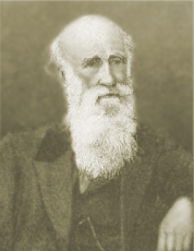Contact with older people
We all know and have contact with older people. Some of us also do belong to what is called the third or even the fourth age.
In general, we can say that an ageing society isn’t just a challenge for national governments, policymakers, and healthcare providers to solve. It affects everyone who has, or will have, an elder family member or loved one in their lives — and everyone lucky enough to grow old themselves.
Crossroads
All through life we come to crossroads where decisions have to be made, of which we often think later,
“If we would have done this or that”.
Every time when we had to make such important decisions we created a knot in our memory which we try to unravel in later years, when we are old and in many cases already long forgotten by others we have met in our lifetime. At a certain age, it will be as if we are willing to go back in our past to redo certain things. We are confronted with our limits and with our mistakes. Not able to go back and have another shot at the way we live our lives, we are once more confronted with our own limitations. For some, the time has come that angst knocks at the door of not knowing or remembering certain things. And the greatest factor in helping them into getting older faster is the loneliness that awaits so many elderly. Loneliness is the devil of the elderly which accelerates the ageing process. Spending the day without stimuli other than television or cell phone, without seeing anyone or going out causes the person to deteriorate faster and to have the person lose motivation to take care of him- or herself and of their health.
Old vs. young and healthy
Most people try to do everything to stay as healthy as possible and to grow as old as possible. We try to hold on to nice memories and want to carry them in still other years to come. The days pass, the elderly are confronted with good and bad days, often questioning them if it is still worthwhile to continue living. For some there are moments which are not clear anymore or where they wonder who is who or which time it is or where their youth is gone. For some comes the moment they want to look in the eyes of others to find the answers. For some days will be approaching that they shall not remember the days of yesteryear. Those in the middle of their life shall realise that one day their beloved parent will no longer know them, no longer know any of the family, but until that day it is important there are the regular family visits with the precious moments of holding hands and on letting the person know how much he or she means to the visitor.
Indignities of old age
Today we are confronted with the indignities of old age……
Looking at that older getting population we must be aware that many of the illnesses we attribute to such age are not due to age.
The population is getting older, but the conditions for those older people are not always so respectful or pleasant for those people. During the EESC hearing “Towards a new care model for the elderly: learning from the Covid-19 pandemic” Michaël De Gols, Director of the Union of Enterprises for Social Profit ASBL (UNISOC) said:
“Population is getting older, we need more care but financing is missing. A sufficient, stable and sustainable financing is important for the long-term sector to be able to provide its services”.
Structural weaknesses in long-term care systems
Further reforms need to be pursued by the Member States to address structural weaknesses in LTC systems and make them more resilient to future external shocks.
The old people have been the most affected by the COVID-19 pandemic.
Referring to the Article 25 of the EU Charter of Fundamental Rights on the rights of the elderly to lead a life of dignity and independence, the participants welcomed the Commission’s initiative on LTC planned to be adopted in 2022.
Medical care had its origin in the humanitarian motive of caring for the sick, while preventive health services sprang from the need to protect a healthy environment from epidemic diseases. Now with a pandemic, the urgency to see how we can protect the elderly has come more to the forefront. It is not bad to see that the interest of public authorities in medical care schemes has increased and they have taken more attention to the importance of statistics on the incidence of diseases and other problems, as well as the epidemiology necessary to combat them. But with giving so much attention to statistics, many have forgotten to look to the social and emotional elements in healthcare. In several countries the economic aspect became more important than the human and emotional factor.
Framework for policy reforms and for guiding the development of long-term care systems
The European Care Strategy will set a framework for policy reforms and guide the development of long-term care systems that are sustainable and ensure better access to quality services for those in need.
Maciej Kucharczyk, Secretary General of the AGE Platform Europe, said:
Developing good care systems is an opportunity and services are the means to support people’s autonomy, independency and quality of life.
The systemic weaknesses and the difficulties in ensuring continuity of care highlighted by the high number of deaths in long-term care facilities, brought to the fore also the vulnerable employment and working conditions of the carers.
Exposure to the virus with the landing in intensive care
Anti-vaxxers and several (mainly) youngsters who refuse to wear a mask properly and to keep their distance, put a lot of pressure on our health system, by which the danger is that elderly people get affected worse.
In the majority of EU states the doctors and nurses are not enough cared for. If you compare the wages of soccer players with the income of a surgeon, one can question what is the value of a life of a person. In this crisis there is also not enough attention paid for those who are against vaccination, to let them know what a burden they leave on those doctors and nurses who do everything they can to save those people with CoViD. The television station could already have much more attention given on the pressure which is on the aid-workers all over the world, by people who did not want to get vaccinated, but got infected and came into intensive care. The intake of those infected taking lots of necessary beds at IC, makes that lots of other necessary operations are postponed. When it is elderly having their necessary operation postponed, it is because of those who refuse to be vaccinated, that those elderly run the risk of dying earlier than necessary.
It looks like a lot of youngsters have no eye anymore for the elderly, but are only interested in what they call their own freedom and their right to have fun. Their egoism has won them over to neglect all the necessary rules to keep everyone safe.
Demanding jobs require adequate support
During the pandemic, the LTC workers did some of the most demanding jobs without adequate support. Tuscany Bell, from the European Public Service Union (EPSU), said:
In order to provide an adequate service for people in need of care, we need appropriate working conditions and a sufficient level of qualified personnel. Actually, an insufficient number of care workers care for too many people.
Ms. Bell focused on the importance of defending the workers’ rights by strengthening collective bargaining and social dialogue, to improve wages and working conditions. Aligning funding with investment in the workforce can lead to positive outcomes for workers and residents. Funding needs to be conditional on providers abiding safe staffing ratios and good working conditions.
Economic and social policies, and necessary coordination between social and health services
As active ageing has a cross-cutting nature and touches upon economic and social policies, coordination between social and health services is needed.
Reinforcing the systems with better funding will allow structural changes, making LTC more accessible and allowing old people to enjoy a life of dignity as autonomous and active members of society.
The EESC stresses that the European Pillar of Social Rights must result in a positive project for all. This way it can contribute to regaining trust in the EU’s ability to improve life prospects for current and future generations. It is nice to see that we can become older, but we should also be sure that the quality of life will not deteriorate when getting older.
In our Union we need social protection systems with a view to achieving a fair balance between the economic and social dimensions, as well as contributing to the fight against poverty, social exclusion and inequalities. Today we (to our shame) can find a lot of poverty by elderly, who when they were young contributed to our society. They should feel rewarded for what they did for future generations. And at the moment this is lacking.
Shared understanding of social progress and productivity
The EESC acknowledges that the European economic and social model is based on the shared understanding of the importance of increasing employment, social progress and productivity, as the underlying key factors for sustainable economic growth, which benefits everyone in a fair manner. The process of preparing the Pillar is an opportunity to reaffirm our shared commitment to the European social model, while ensuring that national welfare systems and labour markets are adaptable and fit for the future[1]. The EESC emphasises the need for growth and competitiveness in the whole of the EU. In this context, the EESC stresses the necessary interlinkage between economic, employment and social policy[2].
Life expectancy
All member states should be in solidarity for protecting the elderly and providing them a life worth living. therefore a new mind-set towards change is necessary having social progress and social security to become more central in the EU policy debates.
Sustainable pension systems are of key importance taking into account the ageing of European societies. The Commission has stated that increasing retirement ages in line with gains in life expectancy combined with efforts to promote active ageing not only allows for a substantial reduction in pension expenditures, but also allows for accruing higher pension entitlements. However, the EESC has previously criticized the Commission’s proposal that the retirement age should be indexed to increasing life expectancy and instead proposed measures that bring the actual retirement age closer to the statutory retirement age[3]. As stated by the Social Protection Committee, reducing unemployment and encouraging people to stay in labour markets longer today, including through raising the labour market participation of women, will be crucial for the future sustainability and adequacy of pension benefits[4]. For example, a European comparative pension sustainability and adequacy index would be a helpful benchmark to underpin Member States’ efforts to reform their pension systems and to reduce poverty.
What we may not forget is that placing the retirement age further and further away, shall not bring the right solution, because it is just an unbreakable fact that certain things can not be done any more after the age of 60 or 65. It was for a good reason that in the past the age of 65 was chosen for retirement. In the past, we also could see that a lot of people already died before that date or died when they just retired. That people may live longer now must not mean that we have them working full time for a longer time. It can well be that several older people are able to do still some very good work after they reached 65, but they should be at liberty to divide their time for work and leisure in all liberty and not be forced to work full time, which would be a too heavy burden on their health and condition of life.
Quality time
Belgium has just about the lowest pensions in Western Europe. The Groen basic pension is no solution. A good pension is: 75% of the average wage instead of 60%, and a minimum of EUR 1,500 net, not gross.
In Belgium the government has curtailed the early retirement system. The growing number of long-term sick people shows that this is not tenable for many people. And if unemployment among young people is so high today, isn’t early retirement just the solution?
Statutory pensions transformed into a minimum protection against poverty
The statutory pension is reduced to a means of escaping poverty. The Michel government raised the minimum pensions a little, but cut the average pensions, as if they were not low enough.
It is the general trend in Europe to dismantle the first, statutory pension pillar, with the empty promise of a stronger private “second and third pillar”. According to the European Commission, the statutory pension in relation to the average wage will fall from 44% in 2013 to 34.9% in 2060. That is one fifth less.
This downward trend undermines confidence in the entire system. Statutory pensions are being transformed into a minimum protection against poverty. For a decent income after one’s career, we increasingly have to rely on private savings. The liberal ‘every man for himself’ that Mrs Rutten stands for. Or as Pension Minister Daniël Bacquelaine put it: ‘Those who want a good pension must take responsibility themselves’.
We are bombarded with three reasons to work longer: we live longer, there is a labour shortage and pensions are unaffordable.
All three are wrong, Kim De Witte proved with figures and studies. The De Croo government simply continues along the lines of the previous governments. It will not go back on the increased retirement age of 67, it will further dismantle early retirement and it wants to privatise pensions. The government bowed to pressure from the PVDA to increase the minimum pension to 1,500 euros net. But it is keeping it at gross, and not until 2024. Too little, too late. The PVDA has well-founded reasons to want a right to an early retirement pension from the age of 58 for certain professions, without being available on the labour market. To go in retirement at the age of 55 in the case of restructuring or a runway looks too early. In such instance the government should provide alternatives, like going for another job in a totally different sector after some training provided by the government or by the future employer.
Compared to the year 1950, today we produce 5.5 times more wealth per worker. Today there is much more automatisation, which should have made the work lighter as well should us provide some more time for oursleves. But our working hours have not decreased proportionally. Yet a collective reduction in working hours is perfectly feasible if we redistribute the work to those who currently have no work (400,000 unemployed) or too little work (part-timers). A 30-hour week is absolutely necessary to achieve more equality between women and men. And when people would have more time for themselves when in the working period between 20 and 60 years old, they probably would have still enough energy to continue working.
Our priority should be to increase the quality of life of the worker as well as of the retired person.
*
[1] OJ C 299, 04.10.2012, p. 115, OJ C 332, 8.10.2015, p. 68.
[2] Social Protection Committee, Social Protection Performance Monitor (SPPM) – Report on key social challenges and main messages from SPC, 12606/16.
*
[3] National debates in Ireland, Latvia, Portugal and Spain.
[4] Article 3 TEU: “…(The Union)… shall work for the sustainable development of Europe based on balanced economic growth and price stability, a highly competitive social market economy, aiming at full employment and social progress, and a high level of protection and improvement of the quality of the environment.”
+
Preceding
Ageing and Solidarity between generations
++
Additional reading
- Old people thrown out of churches (Our world) = Old people thrown out of churches (Some view on the world)
- What would you do if…? Continued trial
- Dissolve The Barriers You Created
- Uncertainty and limitations
- In the turbulence of life, listen and wait.
- Believe me! Everything is Possible
- Your only limitations are those you set upon yourself
- How the Story Ends
- Coming to the end of 2018
- Dying or not
- Elders advice
- A person is limited only by the thoughts that he chooses
- Man Up?
+++
Related
- “Life can only be understood backwards, but it must be lived forwards.”—Søren Kierkegaard, Danish existentialist philosopher, 1813-1855
- “Life is made up of marble and mud.”—Nathaniel Hawthorne, American novelist, 1804-1864
- Life Goes On
- Another crossroad.
- Living the dream: my body is rusting
- ‘I Coughed & Put My Back Out’: When Did You Realise You Were Getting Old?
- Trapped?
- The biochemistry of the ageing process
- The Surefire Way to Health and Longevity: Intermittent Fasting
- Parental half-life
- Fifty Years Ago Today
- Snippets of Life (from A to Z) “Y”
- Numbers
- Mortality sucks
- my generation
- What do you do now that you’re…….
- Contentment
- Holding On…
- Dementia
- Being Thankful For Those With Dementia
- 45% of Australia’s residential aged care facilities are for profit
- Can meditating protect the brain from ageing?
- Physical activity may improve Alzheimer’s disease outcomes by lowering brain inflammation: new research
- Charting host-microbe co-metabolism in #skin #aging and application to metagenomics data
- Behaviour support planning in residential aged care -2
- Society: Surge in mortality will see 2020 levels of death become new normal






























 Biblestudents – Bijbelstudenten
Biblestudents – Bijbelstudenten 0 + Bloggers for Peace
0 + Bloggers for Peace Free Christadelphian Ecclesia
Free Christadelphian Ecclesia Hoop tot Leven – Redding in Christus
Hoop tot Leven – Redding in Christus Vrije Broeders in Christus (Free Flemish Christadelphians on Wordpress)
Vrije Broeders in Christus (Free Flemish Christadelphians on Wordpress)















Pingback: Aanpassing voor een overbevolking en pensioenmogelijkheid – Some View on the World
Reblogged this on Andrew James.
LikeLiked by 1 person
Pingback: Fourth wave of COVID-19 a pandemic of the unvaccinated – Some View on the World
Pingback: Don’t Get Vaccinated, It’s Dangerous | From guestwriters
Pingback: Fight for decent wages and conditions for workers on the frontlines of the pandemic – Some View on the World
Pingback: Underpaid health care workers with hands in their hair | Marcus Ampe's Space
Pingback: Not liked or Hated Questions – Some View on the World